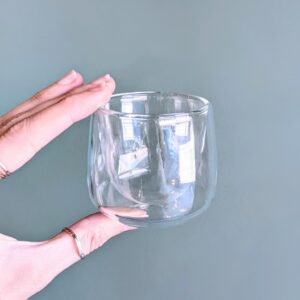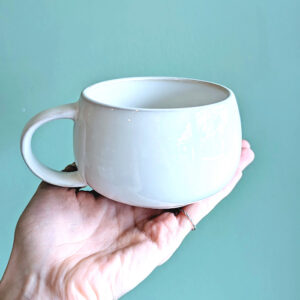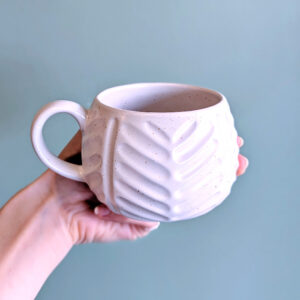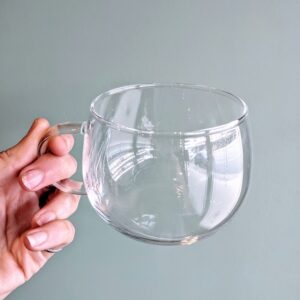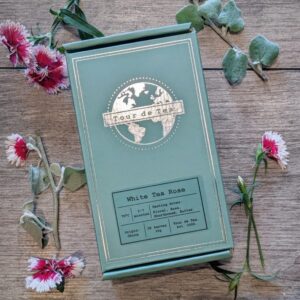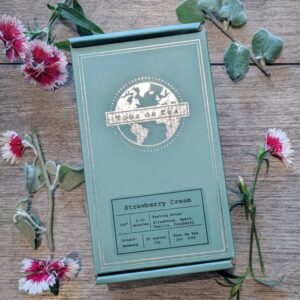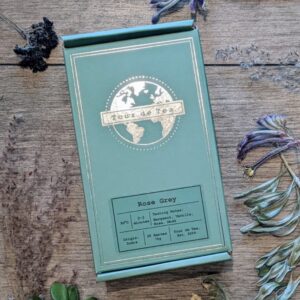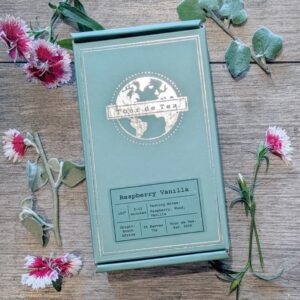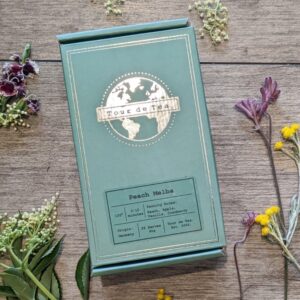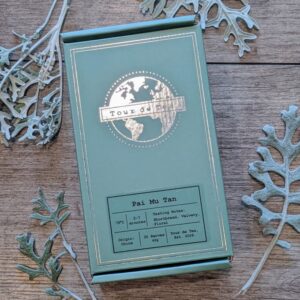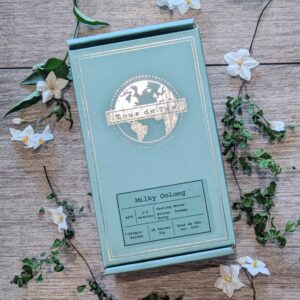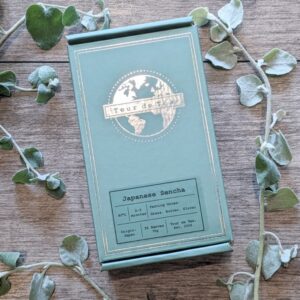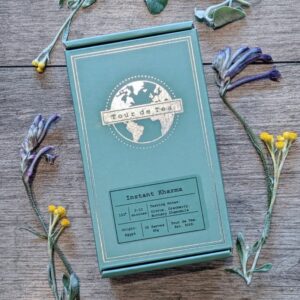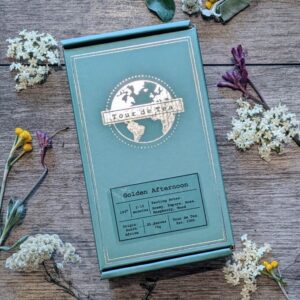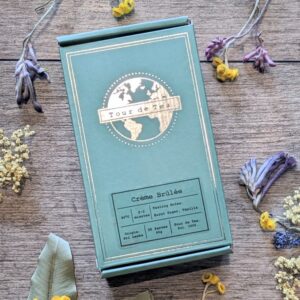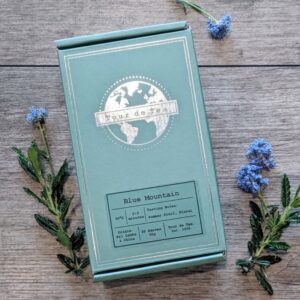Ceremonial Matcha is having a moment. A big one. Maybe a long one. Maybe Japanese Matcha powder has permanently found its way into the zeitgeist of the new 20’s. It’s a revelation to many who confess they are on the path to obsession, but what may be appearing for the first time in some Australian cafes, has been a meticulous craft and ritual on the other side of the globe for centuries. In fact, it is one of the oldest types of tea in Japan.
There seems to be infinite ways to structure a conversation around Japanese Matcha Powder, and as your trusted Brisbane tea shop, we feel it would only be right to try and address the major points, learning its history, how we approach our own matcha, and what to look (and look out) for when exploring the world of matcha.
The Processing | A Brief Overview
Matcha sits very closely to Gyokuro (one of Japan’s highest grade premium green teas) when it comes to the growing, shading, and harvesting of the leaves. Before the matcha leaves are ground they are referred to as Tencha leaves which, when brewed in this form, are quite rare and special. The green tea leaves are shaded for approximately 20–30 days. Sunlight is a huge variable in tea processing, impacting the character of the leaves through the plant’s chemical response to sunlight. The shade prevents the conversion of (L-)Theanine into catechins, which can lead to astringency and bitterness – instead preserving a paradoxical umami sweetness. However, catechins aren’t inherently negative; direct sunlight is utilised in many tea fields to develop beautiful quality, rich black teas.
The leaves are then steamed, dried briefly at a high temperature and cut. This brings us Tencha. The tea is then ground in a stone mill, until an ultra-fine powder is achieved. We source our Japanese matcha from a small tea garden in the mountains who have an independent factory devoted solely to the processing of Tencha and Matcha green tea, run by a meticulous and incredibly devoted team of tea professionals.

Shaded Japanese green tea plants for Gyokuro and Matcha.

Matcha stones and tencha tea

Tencha tea leaves
Matcha mill (below)

Our Matcha
Tour de Tea’s trip to Japan saw us returning home with two exquisite matcha varieties. We spent a fair bit of time in Uji – where the majority of green tea and matcha exporting is conducted (and where a large portion of Australian matcha is sourced). We’ve had an Uji matcha in our range for over a decade. It meets all expectations in what we expect of a simple, high quality ceremonial grade matcha green tea powder. However, Uji has a specific ethos around matcha which is highly focused on colour.
In visiting Uji’s plantations and matcha producers, we found conversations around flavour profiles were not of interest beyond the umami notes with a vibrant green liquor. Due to this focus, Uji matcha often tends towards an oceanic palate of umami notes. Think seaweed, algal, and brine. While it can be lovely, it’s very common in Australia and we didn’t feel the need to bring home more Uji matcha in an already overflowing market.
As we explored other farms outside the Uji province, we learned that focusing on colour as the top priority is often what results in this more confined flavour profile. As such, we ended up collaborating with a smaller tea farm who, while producing a ridiculously lush, verdant green matcha, was very focused on flavour profiles from grade to grade ensuring each ceremonial matcha tea they produced delivered intriguing and distinctive characteristics.
And So We Found Tour de Tea’s Two New Matchas
 Nø 01 Matcha: Bright and sweet ceremonial matcha with notes of melon, macadamia, and butter. This matcha is everything we had hoped for in a top grade – nutty and toasty, with a gentle fruity quality. It whisks like a dream, and a beautiful creamy froth sits atop a vibrant green liquor.
Nø 01 Matcha: Bright and sweet ceremonial matcha with notes of melon, macadamia, and butter. This matcha is everything we had hoped for in a top grade – nutty and toasty, with a gentle fruity quality. It whisks like a dream, and a beautiful creamy froth sits atop a vibrant green liquor.
 Nø 02 Matcha: Bewitchingly umami ceremonial matcha with notes of bouillon, cream and walnut. This matcha is technically a slightly lower grade, sitting one degree under our Nø 01 Matcha. However, as we often discuss when it comes to teas of these incredibly high qualities – at this point, the grading system ceases to be a marker of good vs bad quality, and instead, merely delivers a counterpoint on flavour profiles. As such, this tea is incredibly complex, with an ultra savoury profile, which sits in an agrarian umami space, rather than oceanic. Though incredibly savoury at first, when sitting down to a large cup – we find about halfway through, once your palate has adjusted, a beautiful creaminess comes to the fore. We have found this so distinctive it almost tips it into a sweeter profile. We recommend it to be drunk mindfully to truly appreciate this complexity. The only giveaway that this tea is a grade beneath the Nø 01 Matcha, is that its froth is just a fraction less luxurious.
Nø 02 Matcha: Bewitchingly umami ceremonial matcha with notes of bouillon, cream and walnut. This matcha is technically a slightly lower grade, sitting one degree under our Nø 01 Matcha. However, as we often discuss when it comes to teas of these incredibly high qualities – at this point, the grading system ceases to be a marker of good vs bad quality, and instead, merely delivers a counterpoint on flavour profiles. As such, this tea is incredibly complex, with an ultra savoury profile, which sits in an agrarian umami space, rather than oceanic. Though incredibly savoury at first, when sitting down to a large cup – we find about halfway through, once your palate has adjusted, a beautiful creaminess comes to the fore. We have found this so distinctive it almost tips it into a sweeter profile. We recommend it to be drunk mindfully to truly appreciate this complexity. The only giveaway that this tea is a grade beneath the Nø 01 Matcha, is that its froth is just a fraction less luxurious.
In a Cacophony of Matcha Marketing, How Should You Discern?
We have watched the matcha movement grow in the past few months, and as with any trend, a bunch of new enthusiasts or budding entrepreneurs have entered the conversation. It is wonderful to see matcha being celebrated so widely, but when you’re paying an incredibly premium price – there are a few things that are worth keeping in mind:
The Matcha Representative:
If you see before you a tiktok style personality telling you there’s no good matcha like their matcha – proceed with scepticism as this tells you one of two things:
- The representative has spent most of their time surrounded by poor quality tea, and has not explored the industry enough to know where to find beautiful matcha in Australia (it’s around, it’s been available for a long time, it’s just been a niche industry until recently – there’s plenty of beautiful matcha powder out there).
- It’s buzzword marketing which undermines all of the incredible quality, authentic Japanese ceremonial matcha which has been here, upholding and representing the industry since well before this trend – particularly for those businesses with strong connections and heritage in Japan. The rhetoric that these new matcha sellers have ‘finally discovered what makes good matcha’ to the exclusion of all others is steeped in cultural erasure. If it looks a bit influence-y, keep scrolling to the next cat video, which will likely deliver you more joy than the matcha they’re selling.
The Focus:
If the focus of selling matcha is on the nutrients, caffeine, and relaxation effects – lower your expectations. Tea of all sorts of grades can have these qualities; a better flavour doesn’t necessarily offer stronger health benefits and vice versa. As such, there is no incentive for these sellers to source exquisite flavour profiles when a more average profile is available for cheaper.
Ceremonial Matcha Grading:
Ceremonial Matcha is now widely understood to be the best drinking quality and as such, this is a selling point of many matcha businesses. However, it’s important to know there are huge variations in the quality of ceremonial matcha powder. We have tasted many ceremonial matchas which do absolutely nothing for us, tasting pleasant but underwhelming. So, while it’s a great starting point, be warned it does not guarantee an exquisite drink.
The Company’s Range:
If you come across a company that hosts a large range of matcha powders with no authentic rhetoric, research or experience – this is once again, likely to disappoint. Many of these matcha companies bought bulk varieties and opened very smart looking webpages almost overnight to maximise on matcha’s recent popularity without understanding that freshness is paramount. The sudden arrival of an entire matcha range within a business that didn’t previously promote it, or a pop-up matcha business that claims the space of ‘being the best’ is a red flag on authentic intention.
Ask yourself, does it look like they’re selling matcha to cash-in, or are they genuinely invested in sharing something really special with you?
The safest thing you can do is to buy matcha from a small tea specialist. “Oh how convenient for you Tour de Tea – Brisbane Tea Specialists” – we hear you chirp. And fair enough – but hear us out.
Independent, small-business tea specialists, like ourselves but also many others – will have painstakingly selected a small range of quality matcha teas which they believe to be the very best. As a micro-business with no marketing budget, everything in our range is an ambassador for Tour de Tea; we cannot risk anything less than incredible tea. Small businesses buy small-batch – this is imperative for matcha’s short shelf-life. Additionally, these small orders give us access to smaller tea farms who produce innovative teas, focusing on quality over quantity.


